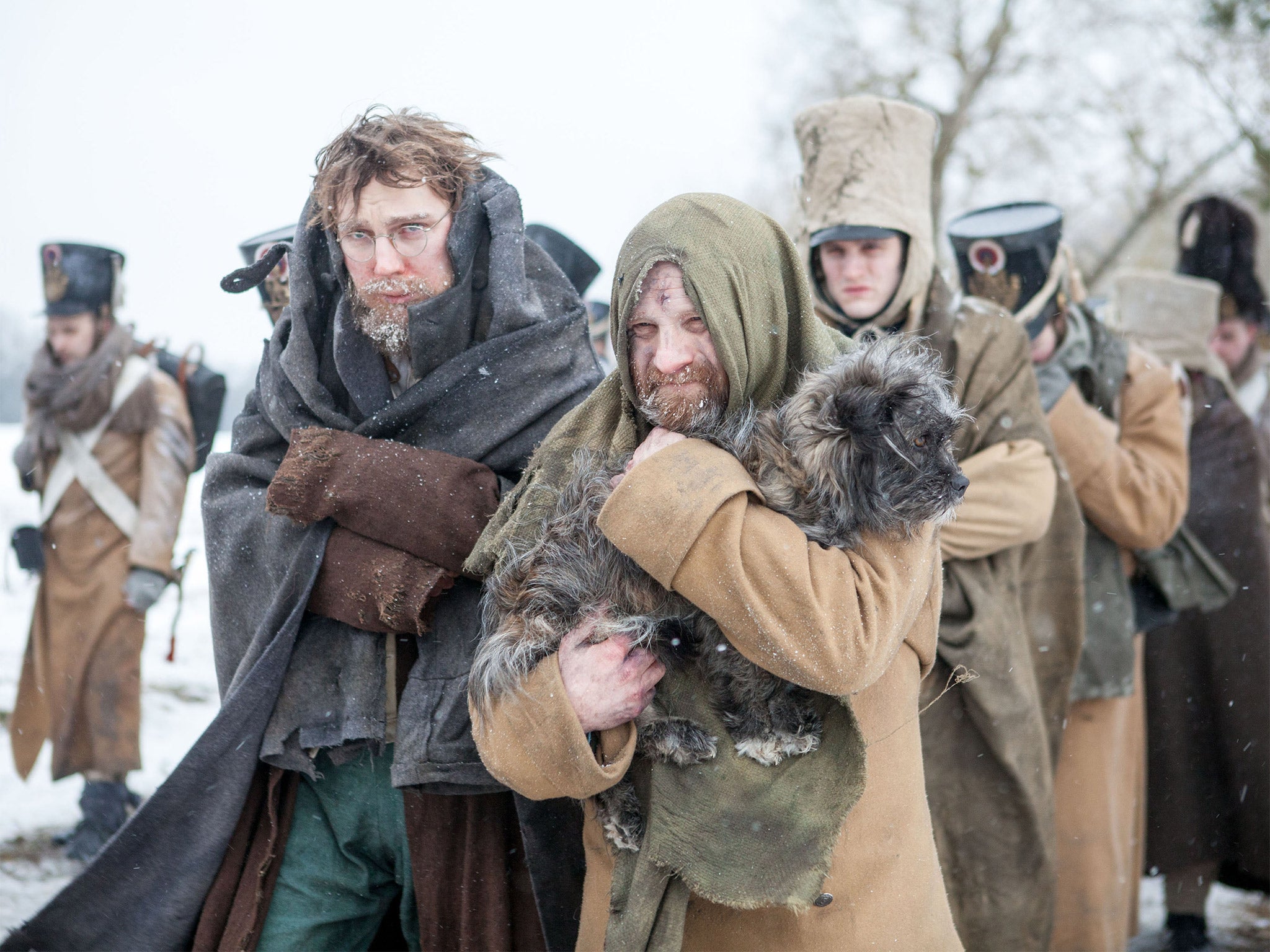But anyway, in War and Peace I came across a quote that really illustrates an essential component of obesity. It's in a scene where the Russian army is chasing Napoleon's army back across Russia, in the dead of winter, with very little warm clothing and food. Both soldiers and prisoners of war are dying of cold and starvation on all sides. A group of soldiers is lounging around a campfire in the evening, commenting on the situation, and one soldier nicknamed Crow says,
"If a man’s sleek and fat he just grows thin, but for a thin man, it’s death."The point is that over the entire history of humankind, this is exactly what has happened. Whenever there was a crop failure or a shortage of food for any reason, the fat got thin (and survived), but the thin died.
What does this mean? It means over the millennia, the people who survived to pass on their genes are the ones who ate what they could when there was a surplus of food, and developed a little extra layer of fat. Those genes that encourage us to eat more, to stuff ourselves when there's yummy food available, to get hungry easily—these are the genes that stuck around, because the people carrying them survived famines and food shortages.
Now, we have the opposite of food scarcity. We have a tremendous abundance of food, engineered to be as delicious as possible, relatively inexpensive, and available anytime, anywhere. So, our environment has changed tremendously.
Our genes haven't changed, though. They're still screaming at us, via our senses and desires, to eat, and eat more, before the next famine comes.
For whatever reason, this doesn't come up much in the whole discussion about obesity. It's not a problem of evil corporations that develop addictive food, and it's not a massive lack of willpower. It's the fact that while our environment has changed to become much richer in calories, our genetic heritage says, "eat now, so that you don't die when food is scarce".

No comments:
Post a Comment